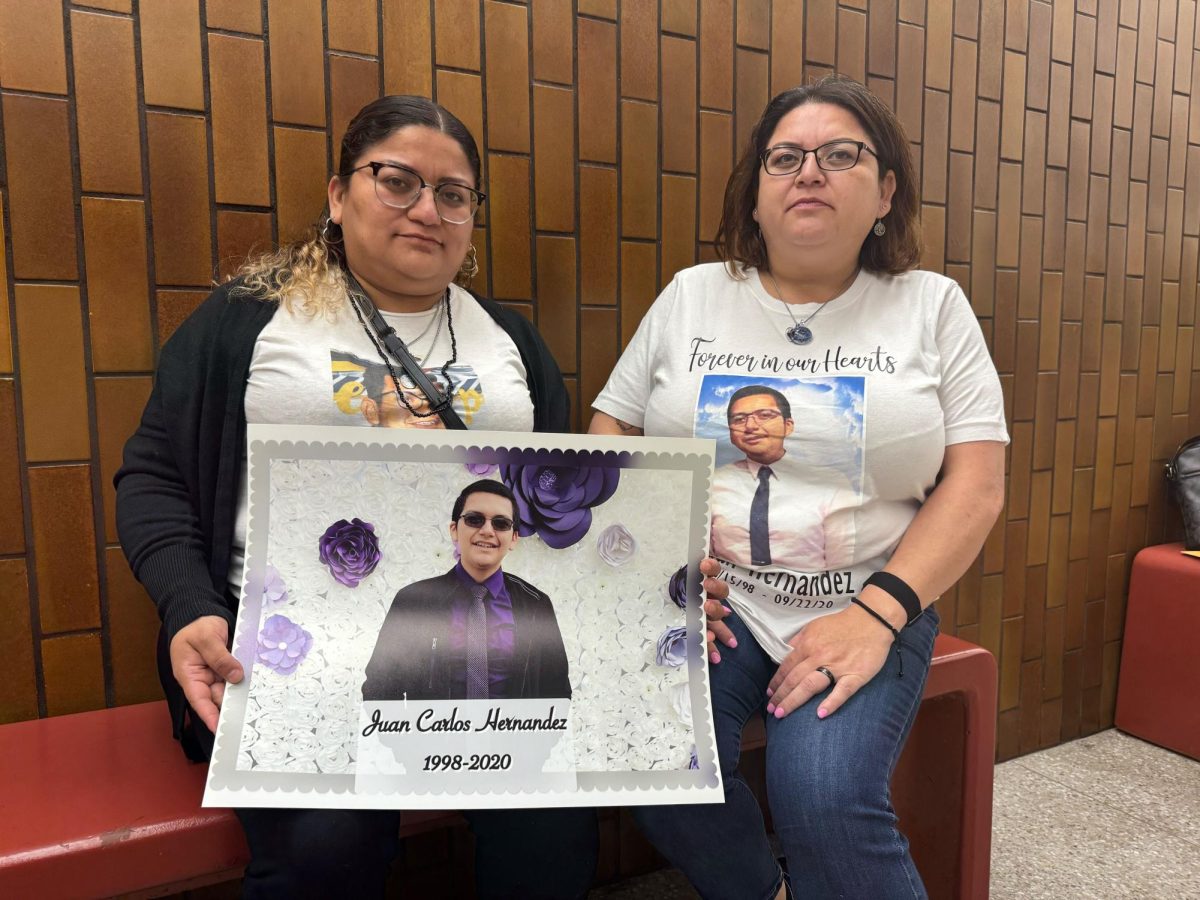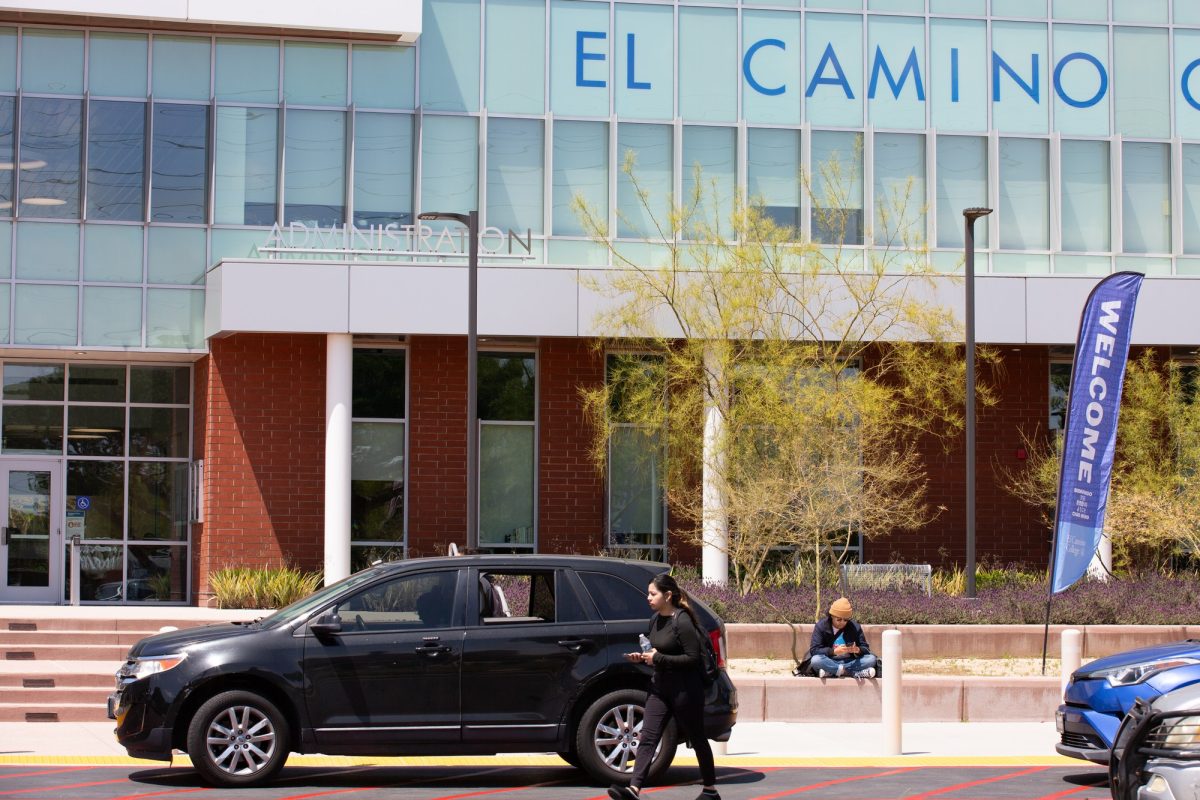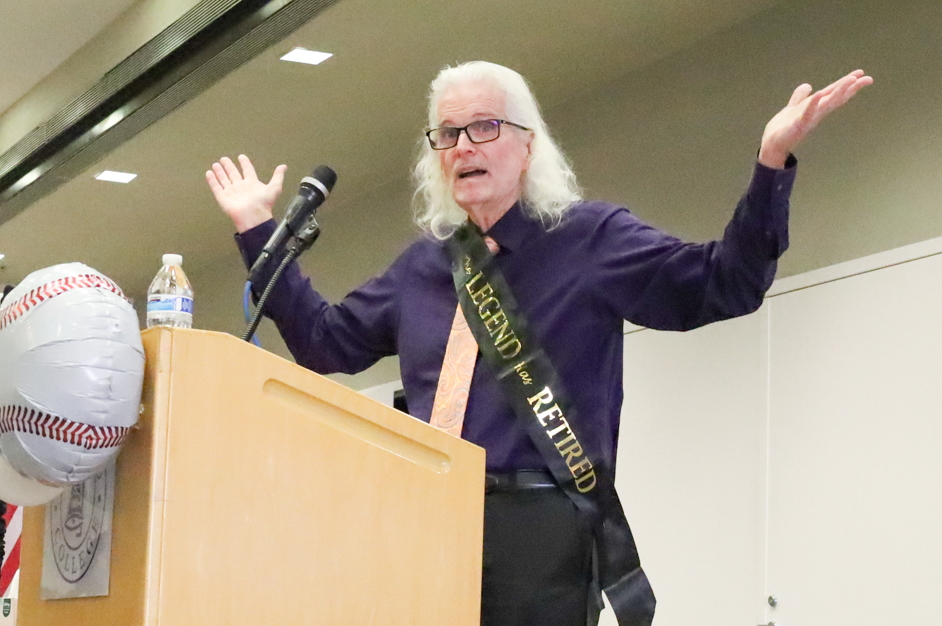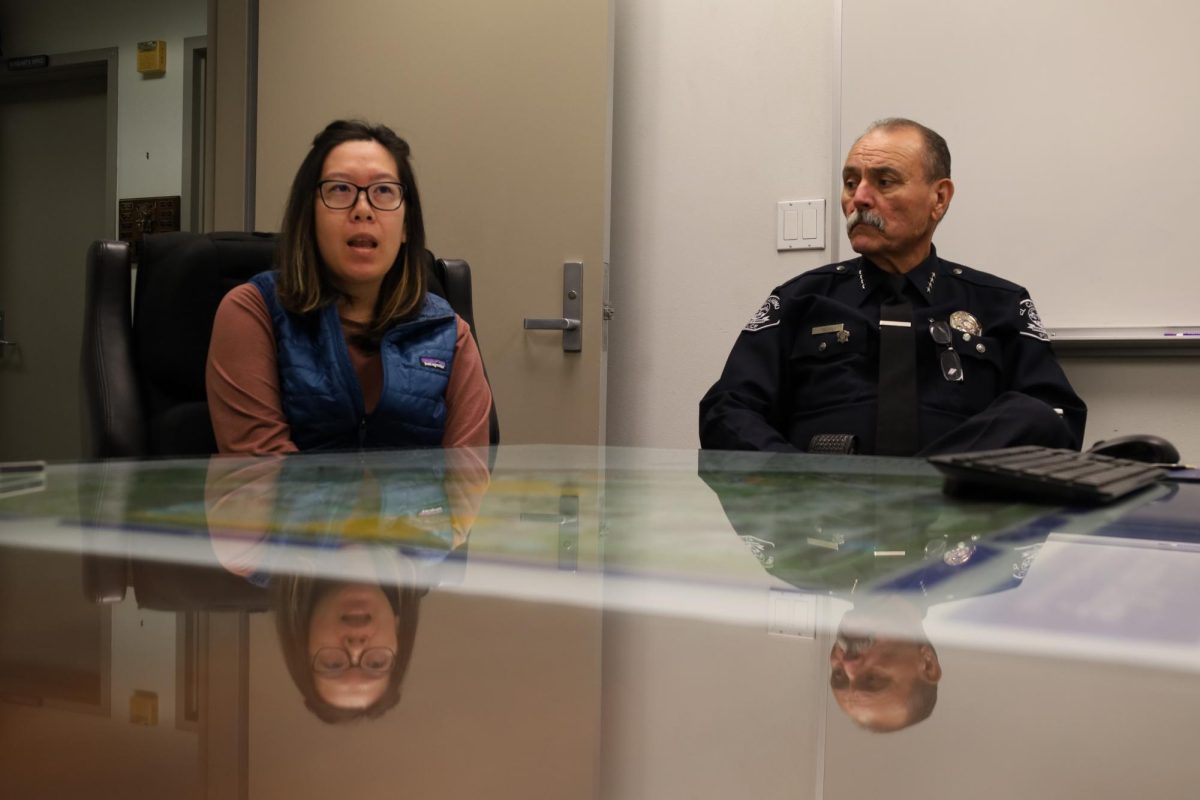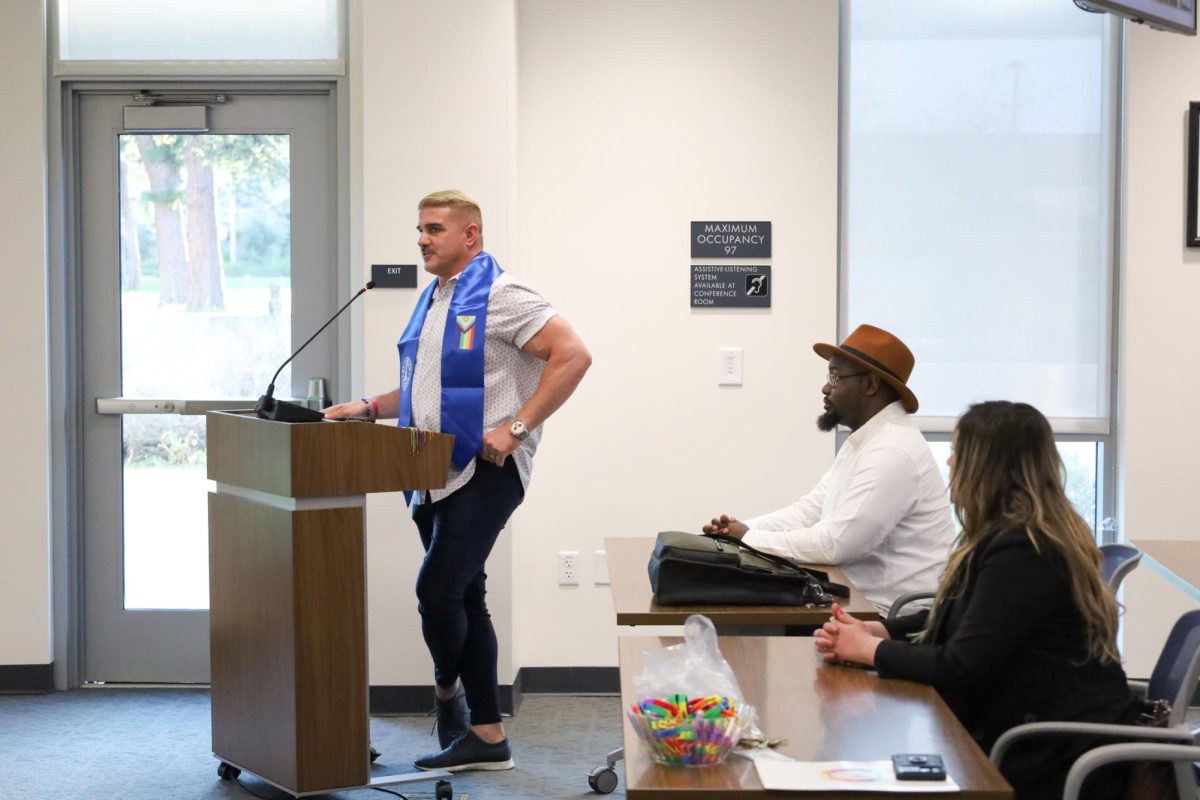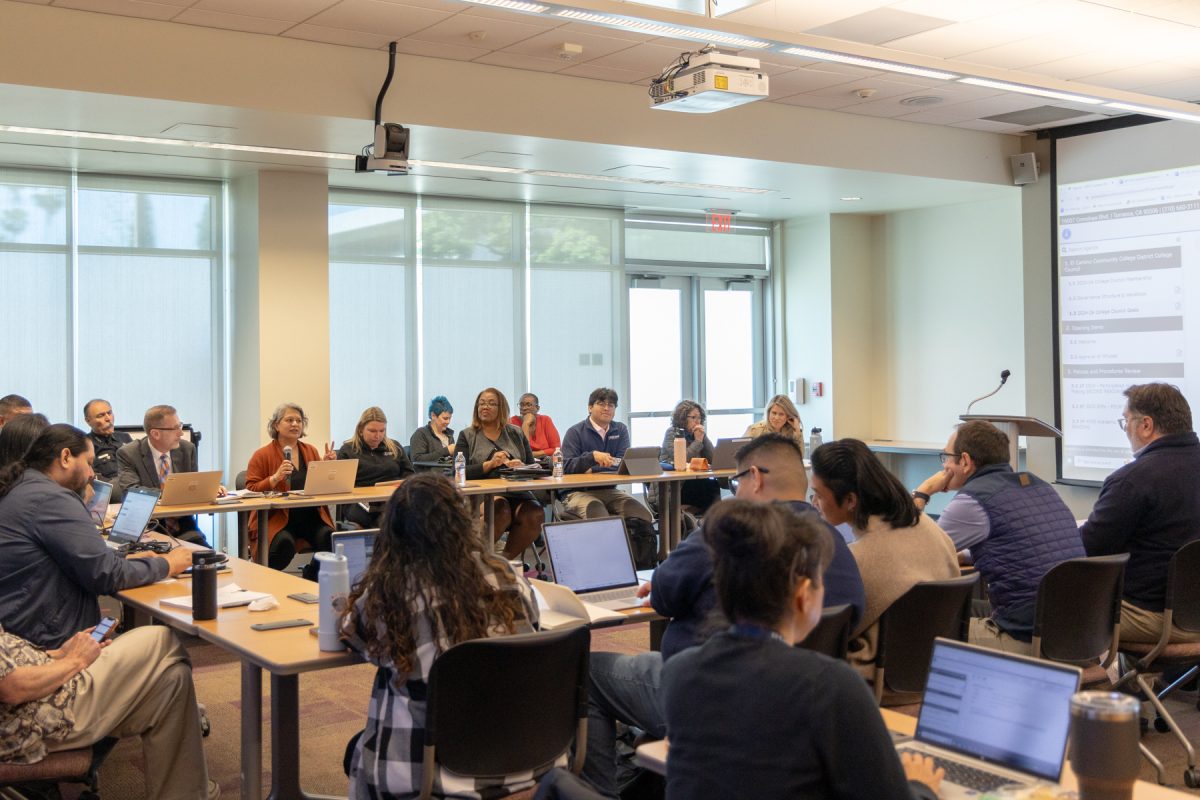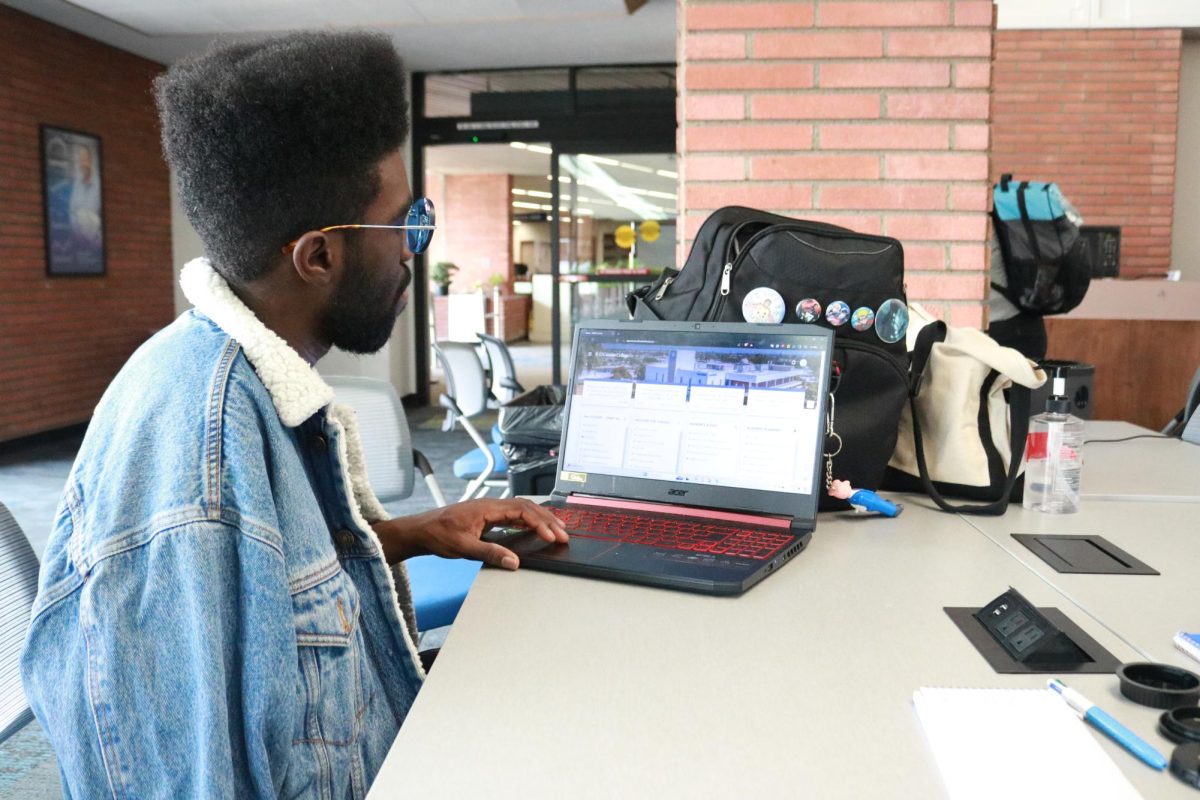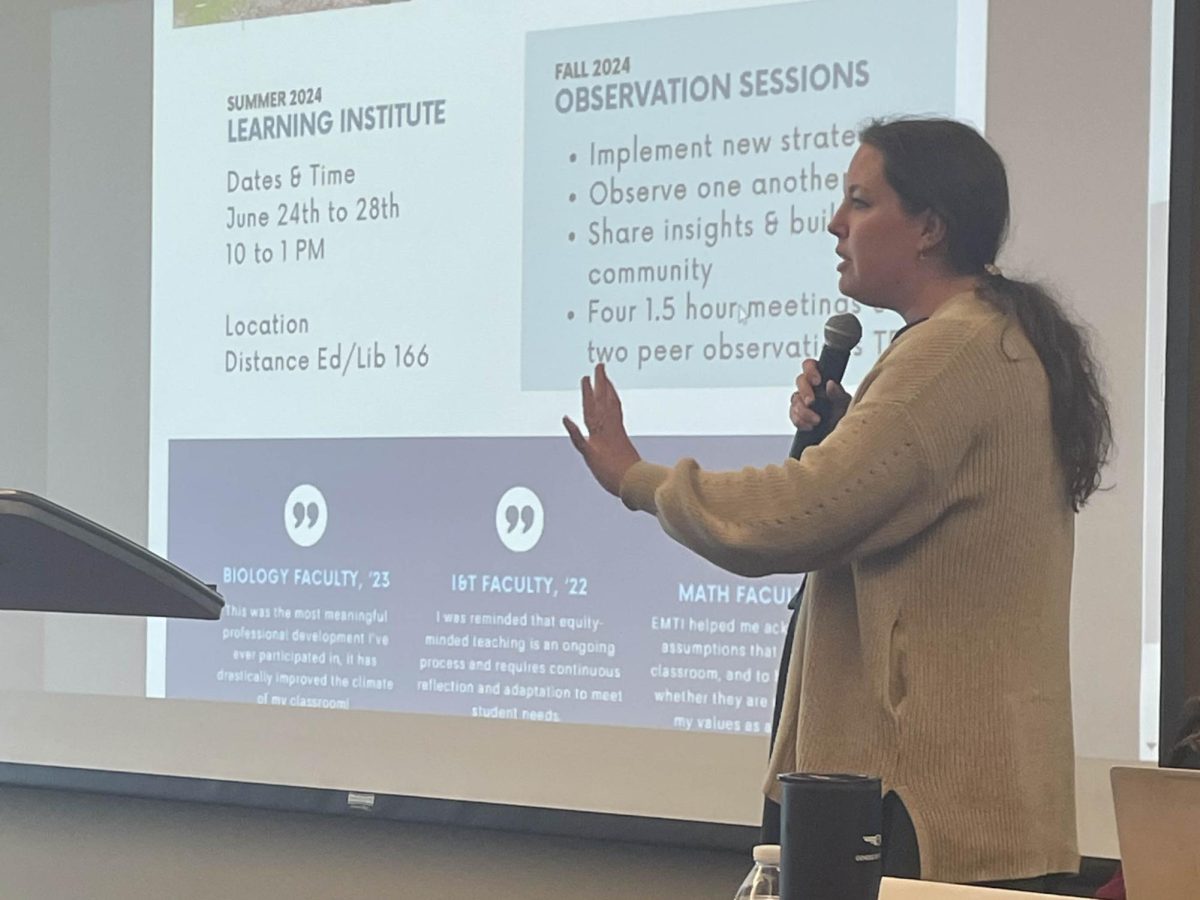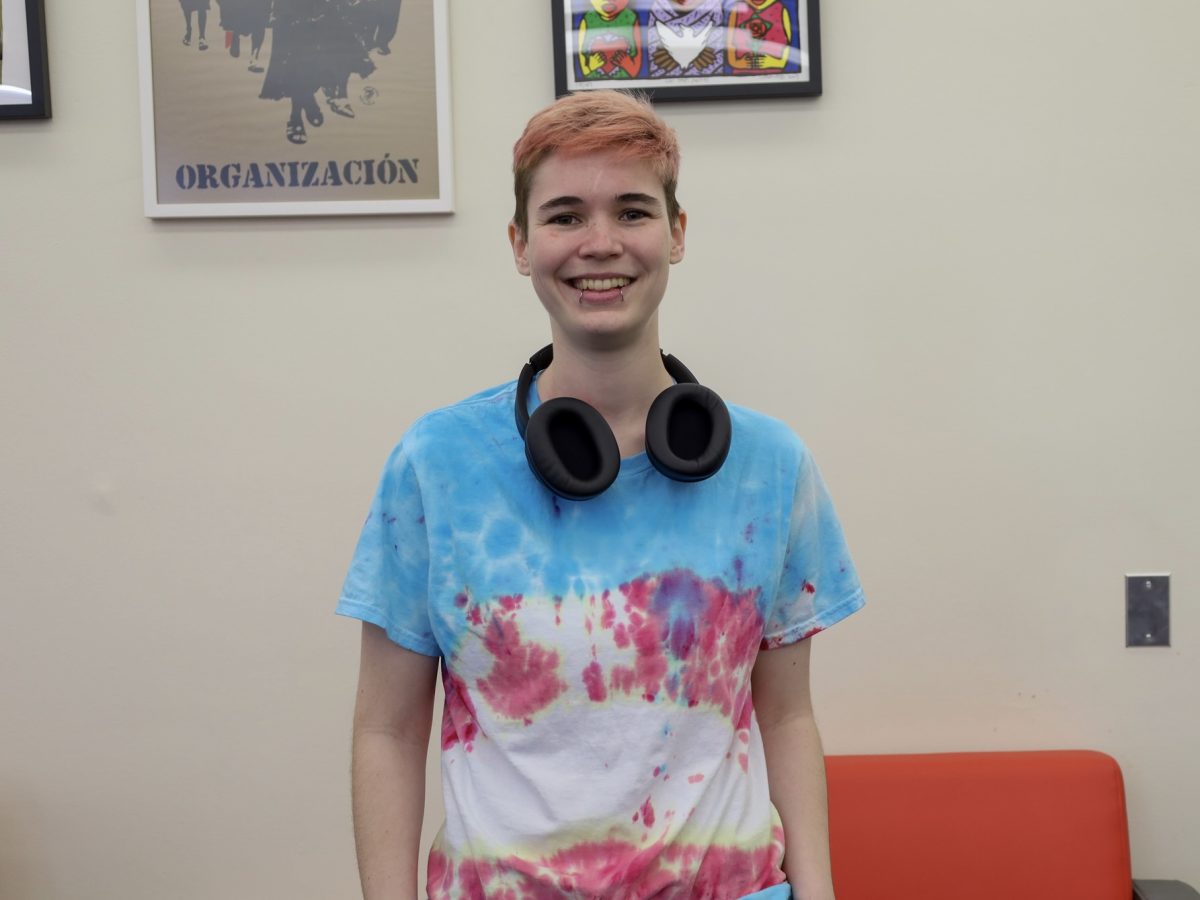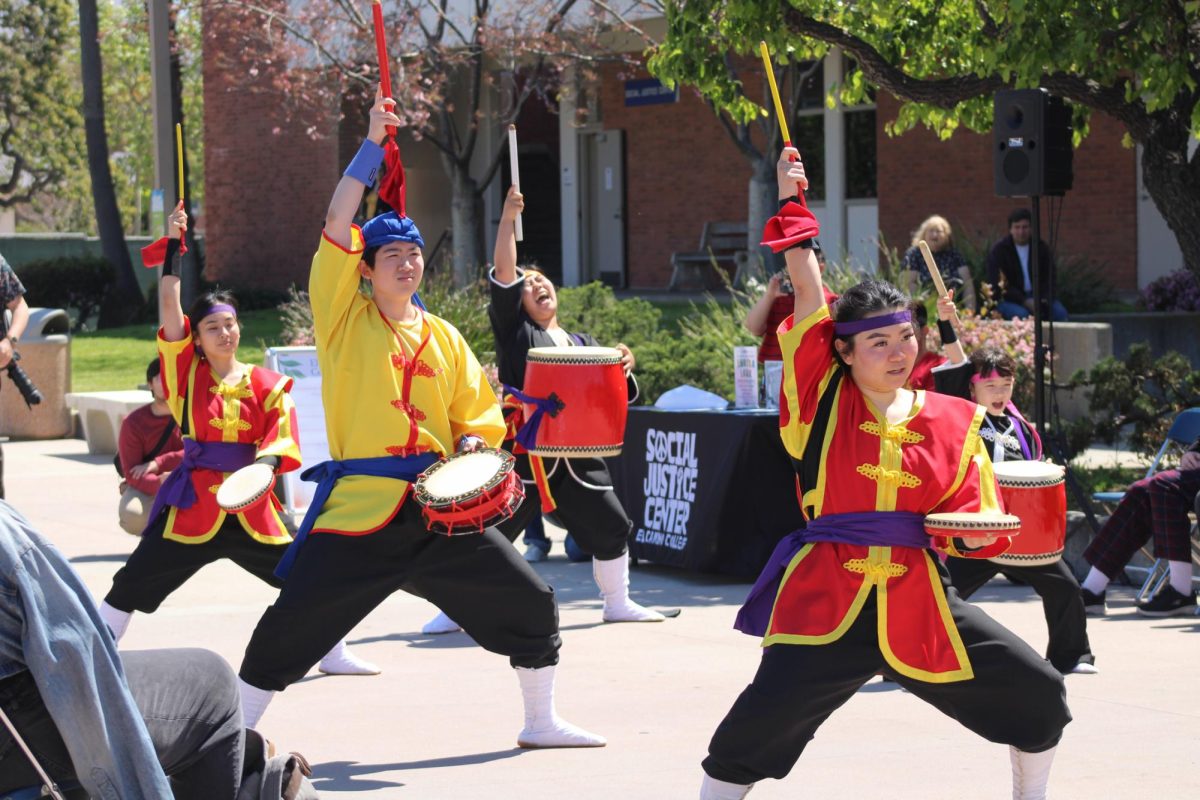[album id=2 template=extend]
It was July 30, 1948. A cold rain had been falling on the London Olympic stadium all day, leaving the approach to the high jump muddy and slippery. Having already slipped and fallen on his two previous attempts, the 19-year-old Olympic athlete attempted to clear the only thing standing between himself and the Olympic gold metal, a 6 foot 6 inch high bar.
Gaining speed as he ran, he reached the bar, planted one foot on the ground and launched himself into the air, rotating his body in mid-air. Almost clearing the obstacle, the bar shuddered slightly and then fell, landing on the ground.
George Stanich didn’t claim a gold medal that day, but the future EC basketball coach and physical education teacher did bring home the Olympic bronze medal along with the memories from a once-in-a-lifetime experience.
“Looking back in retrospect I didn’t feel bad,” Stanich said. “I did what I could.”
Stanich said only one athlete made it over the 6 feet 6 inch height, leaving four remaining competitors in contention for the silver and bronze medals. He said he still doesn’t know how officials decided who was to receive the medals, but in the end he was awarded the Bronze Medal before returning to the U.S.
An EC faculty member from 1955-1992, Stanich is retired and lives in Gardena with his wife of 59 years,Valerie.
Although its 64 years later, Stanich remembers his time at the Olympics as if it where yesterday.
Stanich was in top form by the time he began competing at the U.S. Olympic trials, sailing over a bar height of 6 feet 10 inches, to tie for first place and secure a spot on the Olympic team, he said.
After a boat ride across the Atlantic, Stanich arrived in a post-WWII England that was still dealing with the physical and economic affects of the war.
“There was still rubble all over the place, they [population of London] were on rations, they weren’t getting food to eat,” Stanich said. “It was hard times.”
“The high jump and the 5,000 meters were the first day of the Olympics,” Stanich said. “My goal was to be the first American gold medal winner in 12 years because they didn’t have the Olympics in 40 [1940] and 44 [1944] because of the war.”
It was good weather the day before the Olympics started, but the next morning it began to rain, making the dirt approach to the high jump slippery and muddy, Stanich said.
There were only five competitors who had cleared 6 feet 4.75 inches and moved on to a bar height of 6 feet 6 inches, Stanich said.
“Low and behold, my efforts at my first two jumps at 6 feet 6 inches, I end up on my back,” he said.
For his final attempt, Stanich said he adjusted his approach to go down the middle of the track where there was firmer footing, but the adjustment cost him because he wasn’t used to that sort of an approach and it threw him off enough that he nicked the bar on his way over.
When Stanich was hired by EC to coach the Warriors men’s basketball team and teach physical education in 1955, he took what he had learned from his experiences.
“He [Stanich] would come right over and get with him [EC basketball player] , go over the point he was trying to make, ‘were going to do this, were going to do that,’ and he expected you to go out and do those things,” Keith Erickson, a retired NBA player who was coached by Stanich said.
Stanich said he was doing what he loved at EC and that what he learned from all his previous coaches, especially Wooden, allowed him to touch the lives of thousands of EC students throughout his 37-year career.
“I’d just like to re-emphasize what a fantastic role model and gentlemen Coach Stanich is, and was, as a coach and just as a human being,” Erickson said. “It was just a great blessing to have been able to play for him. He was a very instrumental part of my life.”



